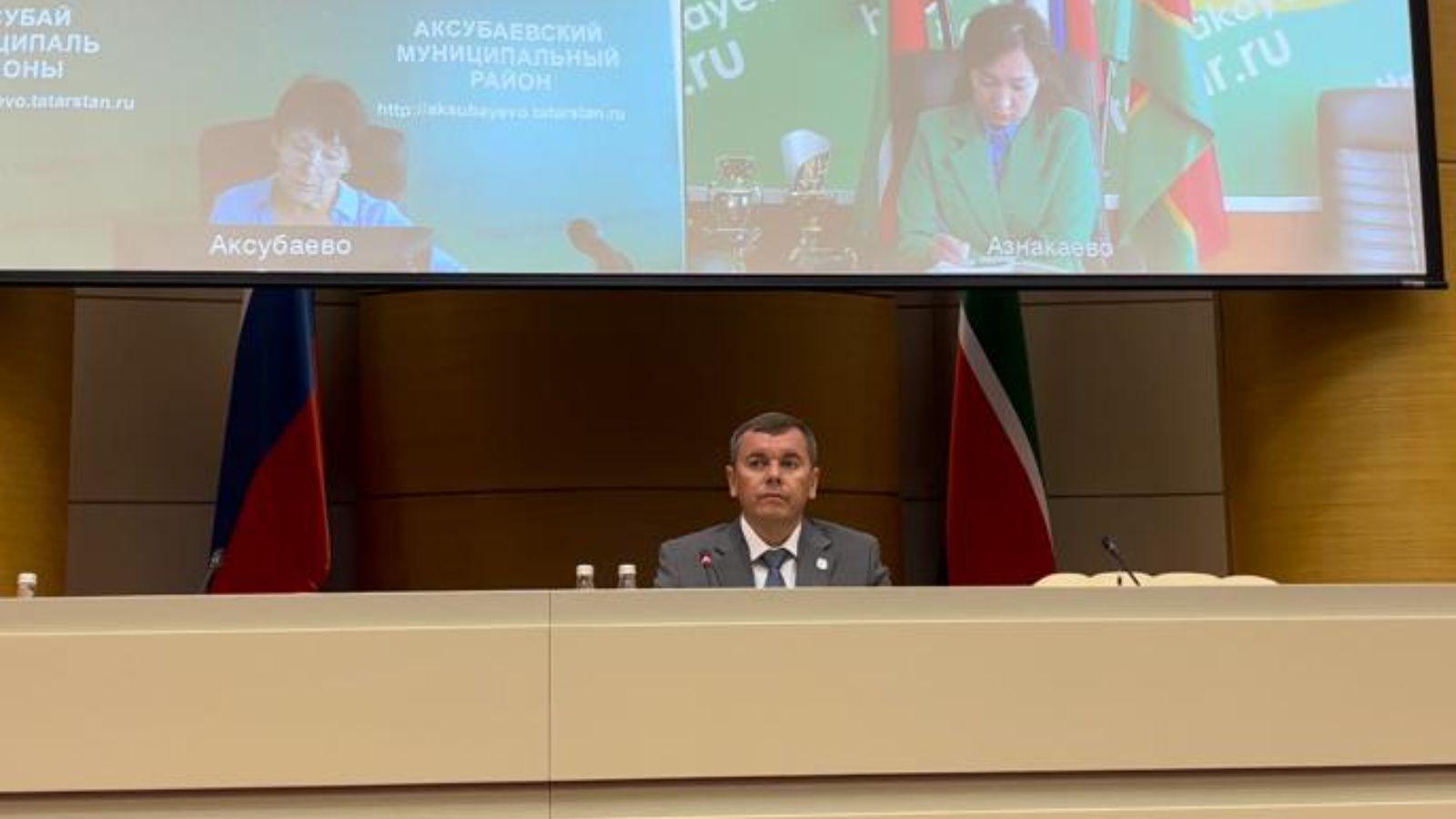The results of the harvesting campaign were discussed at the Cabinet of Ministers

Today, the Cabinet of Ministers of the Republic of Tatarstan held a briefing via video conference, where the results of the harvesting campaign were discussed. The briefing was attended by Deputy Prime Minister of the Republic of Tatarstan - Minister of Agriculture and Food of the Republic of Tatarstan Marat Zyabbarov.
In his report, he reported that farmers of Tatarstan collected 3 million 662 thousand tons of grain with an average yield of 25.8 centners per hectare. Last year the yield reached 36.9 c/ha.
“The harvesting campaign is nearing completion. Today, 98% of the area has been threshed. There are 25 thousand hectares left to remove,” said the head of the Ministry of Agriculture and Food.
According to him, more than 150 thousand tons of grain were collected in Tetyushsky, Buinsky and Arsky districts. The leaders in grain yields were Tetyushsky, Drozhzhanovsky, Kukmorsky, Kamsko-Ustinsky and Kaybitsky districts.
The lowest yield was recorded in the eastern part of the republic. This is due to spring frosts, as well as summer heat and drought, the minister noted.
“About 30 thousand hectares of crops were damaged in the eastern part,” Marat Zyabbarov emphasized.
Next, Marat Zyabbarov spoke about grain purchase prices. Due to last year's high grain reserves, purchase prices for grain crops fell. Tatarstan stores 600 thousand tons of grain from last year’s harvest. “The main problem for agricultural producers in the grain market this year was the high carryover stocks that formed as a result of the record harvest of 2022,” said the head of the Ministry of Agriculture and Food.
As of August 29, the average purchase price for third-class wheat is 10 thousand rubles per ton, which is 3% lower than the same period in 2022, for fourth-class wheat - 9 thousand rubles (9% lower), for fifth-class wheat class - 8.4 thousand rubles (lower by 3%), for rye - 6 thousand rubles (lower by 22%), for feed barley - 7 thousand rubles (lower by 17%).
“Every year during the harvest period, prices decrease. Grain harvesting is still ongoing in the southern regions of Russia,” noted Marat Zyabbarov.
He added that a rise in prices for grain crops is expected in October-November. Therefore, I recommended that farms sort the collected grain, clean it and store it. “We recommend that anyone who has the opportunity or financial strength hold it for now,” the minister emphasized.
To support grain producers, the Russian Government allocates a subsidy to reimburse the costs of its sale. Thus, last year, 990 thousand tons of grain sold were subsidized from the federal budget for a total amount of 1.3 billion rubles.
Additional support for agricultural producers was provided by the purchase of grain for the intervention fund. In 2022, 226 thousand tons of grain were purchased at prices above the current average.
This year, producers received state support in the amount of 718 million rubles, 446 thousand tons of sold grain were subsidized.
Marat Zyabbarov also focused his attention on import substitution of agricultural machinery. Despite the sanctions imposed by Western countries, agricultural producers in Tatarstan continue to use imported equipment. Dealers have worked out parallel import mechanisms.
“In the agro-industrial complex of the republic, more than 10% of tractors, 30% of agricultural machines and up to 100% of milking equipment are imported. Currently, all imported equipment is repaired and used effectively,” said Marat Zyabbarov.
At the same time, according to him, in Tatarstan “the course of import substitution continues.” In particular, machine-building enterprises have mastered the production and restoration of more than 2 thousand types of parts for imported equipment. Prices for parts are on average two times lower than for original ones.
There are several equipment production enterprises located on the territory of the republic. “They cover the needs of our agricultural producers in the segments they produce and are able to provide spare parts to villagers in sufficient volumes,” emphasized Marat Zyabbarov.
He also noted that the vacated niche in the market is being occupied by equipment manufacturers from friendly countries, for example, China and Iran.